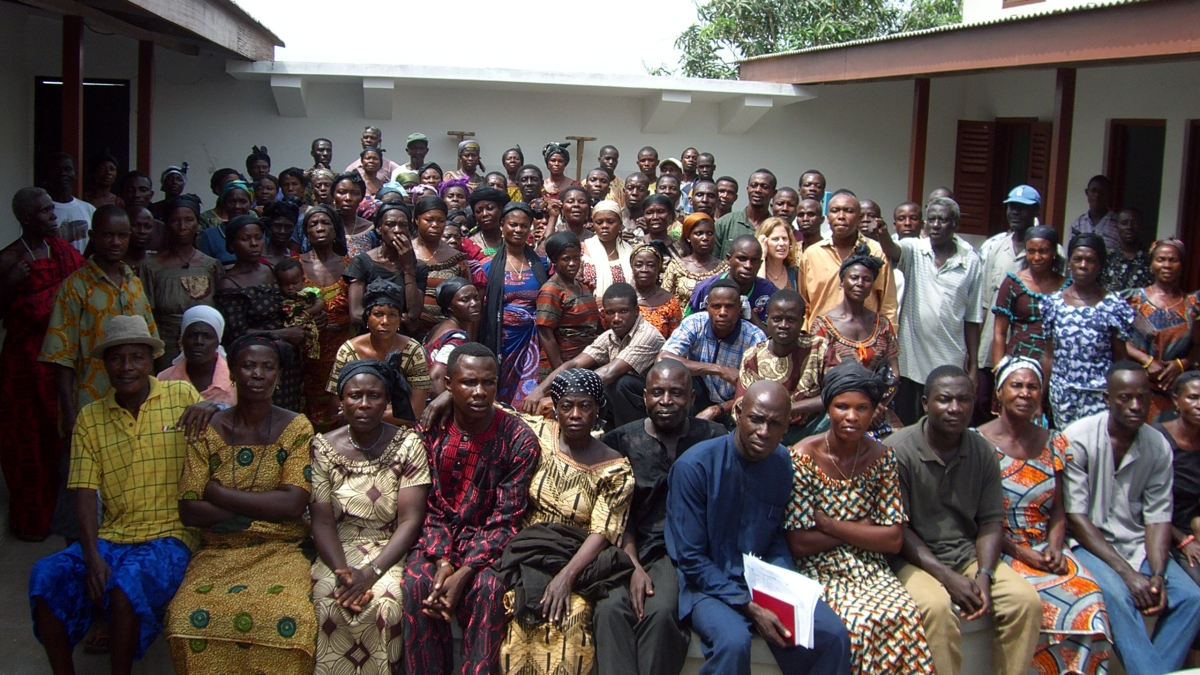It was in Ghana, West Africa, that Danielle Gold came to realize an important fact that would change the trajectory of her work leading education, health and business projects in the developing world.
She was there directing a successful grant-funded community health project, but when the funding ran out, the program struggled to survive, showing Gold it would take more than just short-term financial support to help poor communities gain stability. That experience led her to found Fearless Planet, a nonprofit organization that helps low-income women in developing countries become successful entrepreneurs using not only monetary investment, but also technology training, assistance with agriculture certifications, the development of supply chains, and advocacy with international businesses.
Danielle Gold
This multipronged approach improved the success rate for both women and the communities where they lived, but it wasn’t until Gold began the online Doctor of Behavioral Health program at ASU’s College of Health Solutions that she began to think more about how closely economics and health are tied together. She earned her doctoral degree in 2014 and has since used what she learned to develop programs that support both economic advancement and mental health. Today, that commitment is apparent in her organization’s mission to “improve access to health care and education in … communities … with an emphasis on behavioral health initiatives that reduce substance abuse and depression and lead to decreased violence against children and women.”
The College of Health Solutions spoke to Gold about how her experience in the Doctor of Behavioral Health program informed and continues to influence her work:
Question: How are you impacting health for both individuals and your community?
Answer: I started Fearless Planet on the premise that women use their financial resources to improve health and education for their families and themselves. We’ve set out to create economic opportunities for women by identifying companies that needed specialized production and then providing the skill training and startup funds to meet that demand. We became a bridge to relationships that are wanted but inaccessible without a means to connect them.
Q: What did you learn at ASU that helped prepare you for your career or for the next step in your career journey?
A: Until I started my (Doctor of Behavioral Health), Fearless Planet was focused solely on income-generation programs, but while at ASU I became interested in developing programs that support both economic advancement and mental health. The research on health care disparities for poor and vulnerable populations inspired me to pilot a project to provide vocational training and psychosocial support to a group of Afghan, Syrian and Congolese women in a refugee camp in Greece. The results of that project confirmed for me how powerful it can be to combine skill training and income generation with emotional support. Refugees, like other vulnerable populations, have generally experienced a lot of trauma, which can be an obstacle to success in a variety of ways. My training at ASU gave me a broader understanding that, while economic advancement improves mental health, improved mental health also increases the ability for economic stability. My work with Fearless Planet has enabled me to put that knowledge into practice.
Q: What advice do you have for others wanting to make a difference in health?
A: My ability to create new projects and programs has consistently grown out of a willingness to take risks by contacting people I don’t know and asking them to partner with me. Identifying potential partners and offering them something, rather than just asking for help, is a strategy that has enabled me to venture into new areas where I’ve learned new skills. If you want to make a difference in the health field, stay tuned in to your own true interests and be open to going where that leads you.
Top photo: Danielle Gold stands with the townspeople of Old Ningo, Ghana, in the teacher training center Gold built. The building was later repurposed for producing dried tropical fruits and dried chili peppers. Courtesy of Matthew Lamptey
More Health and medicine
Leading the way in wellness: ASU highlighted in The Princeton Review's 2025 Mental Health Services Honor Roll
Being a college student isn’t easy — navigating new routines, people and places can be a challenge, especially if the right support system is not in place. That's why Arizona State University is a…
New Indigenous health dashboard offers robust database for scholars
By Nicole Greason and Kimberly Linn A team at Arizona State University’s College of Health Solutions and American Indian Studies program has created a new tool to aid researchers…
College of Health Solutions program doing its part during Salute to Service
It wasn’t always easy for Marine veteran Chuck Hale when he first returned to civilian life. But he’ll never forget the help he received from a fellow former service member.“The first vet that helped…

